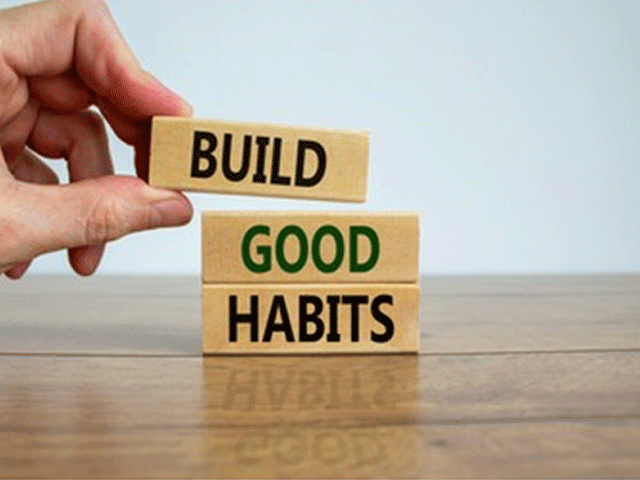EDUCATIONAL PSYCHOLOGIST – 25

Mrs.DEVI VENUGOPAL
Dear Readers, it’s nice to catch up with you all after a break in this year. Always when a New year starts, everyone around starts about, “What’s your New Year’s Resolution?”. Many of us have a few, we start with a vigour, but it fades away within few days. Have you all wondered, why it is so hard to introduce a new habit in our system. Let’s dive into the process of changing the habits we want to and how to sustain into our new habits for years to come.
What is a Habit?
A habit is a routine or behaviour that is performed regularly and, in many cases automatically.(Clear, J, Atomic Habits). Why small habits make a big difference? Habits are the compound interest of self-improvement. It is similar to the money that multiplies through compound interest. They seem to make much of difference in a day but over years the impact they make is huge.
Imagine the impact created by a change in habits is similar to the effect of shifting the route of an airplane by just few degrees. It would land in a completely new city. Making a choice that is 1% better or 1% worse seems insignificant in a moment, but over the span of moments that make up a lifetime difference. Success is the poor duct of daily habits, not once in a lifetime transformations. Habits are double edged sword bad habits can cut you down easily as the good habits can build you up.
Your habits can compound for you or against you – positive compounding includes productivity, knowledge, relationships and Negative compounding includes such as stress, negative thoughts, and outrage. Positive impacts include automation of old tasks gives you the room to invest time to learn new skill; learning one idea will not change much, but commitment to lifelong learning can open up different pathways; finally relationships are crucial, people reflect back your behaviour to you. The more you help they want to help you back.
Talking about negative compounding, the frustration of traffic jam, weight of parenting responsibilities, the worry of making ends meet. These common causes are manageable, but when they persist for years, leads to serious health issues. Coming to negative thoughts, most of the mental ailments such as anxiety, depression and hypertension are caused by our own thoughts of low self worth. Thinking of yourself stupid, ugly or worthless will trap you in the negative thought loop. The same is applicable of what you think about others.
Small changes often appear to make no difference until you cross the critical threshold, the powerful outcomes of any compounded interest are delayed, you need to be patient. The key to focus on inculcating a new habit is to look into the system rather than the results.
What is the difference between systems and goals?
Goals are about the results you want to achieve, while systems are about the process that lead to the results. The four points to ponder why systems are important than goals are as follows:
- Winners and losers have the same goals. Every Olympian wants to win a gold medal, every candidate wants to get the job. The goal had always been there, it is the system you implement with continuous small improvements will enable to achieve a different outcome.
- Achieving a goal is only a momentary change – imagine you have a messy room and you set a goal to clean it. If you bring the motivation to clean, then you will have a clean room for now. But if you maintain the same sloppy, pack-rat habits that led to a messy room, soon you’ll be looking into a messy room again. When you solve problem at the results level, you can only solve them temporarily. For a long term fix, look at the problem from the systems level. Fix the inputs and the outputs will fix themselves.
- Goals restrict happiness – the hidden assumption behind every goal is : “Once I achieve the goal I will become happy.” The goal oriented attitude, puts the happiness off until the next milestone. I have been trapped in the same for many years. It provides you with a narrow vision of happiness. A system first mentality provide the antidote. When you fall into love with the process rather than the product, you don’t have to wait to yourself permission to be happy.
- Goals are at odds with long-term progress. When all your hard work is focused on a particular goal, what is left to push you forward after you achieve it? That is why many people fall back to older habits after achieving a goal. The purpose of setting a goal is to win the game. The purpose of building systems is to continue playing the game. True long term thinking is goal less thinking, a cycle of endless refinement and continuous improvement. Ultimately it is your commitment to the process that will determine your progress.
You do not rise to the level of your goals. You fall to the level of your systems.






